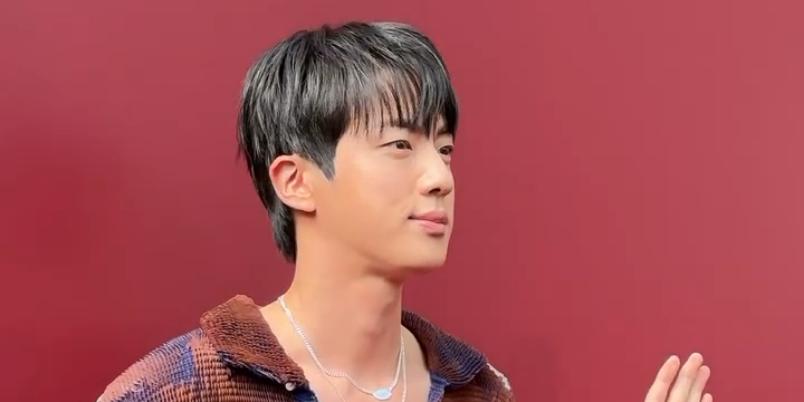Michelle McDonagh, Andrea Mara and Amanda Cassidy have more in common than being acclaimed crime writers. As well as crafting dark domestic dramas for a living, they are former journalists and mothers, and each author brings a unique perspective to the increasingly popular genre. Michelle, who lives in Blarney, writes so-called ‘rural noir,’ with her novels, There’s Something I Have to Tell You and Somebody Knows set in the Irish countryside usually with long-buried family secrets.
Andrea, from Dublin, leans into urban settings for many of her bestsellers, including the chart-topping No One Saw a Thing and her recent book Someone in the Attic. Amanda tends to draw from her experience as a travel journalist. Breaking was set in Florida and her latest thriller The Perfect Place takes place in the South of France.

The trio sit down together to chat about everything from social media to writing inspiration. On writing Michelle: I always wanted to write, but I just talked about it for years and never actually did anything about it. Then suddenly, 50 was looming and I decided, during lockdown, to do a Faber online course about how to write your first novel.
I think you had to do 10,000 words, but I ended up writing 30,000 and that was the first book; There’s Something I Have to Tell You . Amanda: But was the idea percolating for a while? Michelle: Yes. But I found it hard to know what do to with the idea.
I’d started so many books and I’d get a quarter of the way through and hit a cul-de-sac. The Faber course was brilliant because I finally learned how to plot and that made all the difference. Now I had a roadmap.
Plus, it was a good kick up the arse because I knew if I didn’t do it then, I never would. Amanda: I was exactly the same during lockdown. I told myself that if I didn’t do it now, I probably never would.
I’d been writing features as a journalist, but fiction felt so tempting; to have control over it somehow. It was Andrea who told me to just go for it. We were school-gate mum friends as our sons were in the same class.
Andrea, do you remember the first words you ever wrote when you decided to try fiction? Andrea: Yes and funnily enough, they ended up being the first line of my first book, The Other Side of The Wall. It was strange writing it because I’d never written fiction since probably primary school. I also felt really self-conscious because it’s ‘made up,’ but if you are writing a feature for a newspaper, it’s real, so comes with a certain gravitas.
Blogging was my gateway into fiction. It was a way to get things out of my system because having three kids and working full-time and juggling childcare is hard. Part of it was me venting, but also wanting to connect with others who felt like that.
Amanda : I absolutely can relate. There’s something so therapeutic about getting all your thoughts out on paper. With fiction, I found it so satisfying to craft a story I could live through without actually living through it.
I know with my first book Breaking , I was channelling the responsibility of motherhood into the main character who loses her child on a beach while on holidays. On inspiration Michelle: I think my inspiration came from real life too, listening to the radio and reading the papers but I’m not one of those people with loads of ideas. I was reading about someone recently who has so many ideas she’s afraid she won’t live long enough to write all of them.
Amanda: I’ve lots, but they all come at once. My inspiration comes from TV quite a lot. I usually get a glimmer of a theme that I’d like to explore.
I’m always looking for a story to make the reader gasp in the first chapter. Andrea, you are the queen of that..
. Andrea: Thank you! But you never know if you are going to have another good idea. However, I did have a really good one this morning.
.. Michelle: Oooh go on! Andrea: I did that thing of lying-in bed, half asleep when it hit me.
I should have probably written it down. Now I’m sitting here thinking why didn’t I? Amanda: Is it about three writers who get together over coffee to plot the perfect murder?! Michelle: Now, that would be epic. Andrea: I’d read that.
.. All my books have been about something that happened me in real life.
Some of them like No One Saw A Thing , stems from me and my sister on the tube in London when the doors closed. All Her Fault came from when I was collecting my daughter from a playdate, turned up at an empty house and thought she’d been kidnapped. Amanda: That’s a real gasp moment.
I guess some things in life naturally lend themselves to good stories and plots. My sister jokingly gives out to me for stealing bits of her life and putting them into my books, but I don’t even notice. But I guess that’s what storytelling is about — experiencing something in life and then analysing it through the prism of fiction.
On reactions from family and friends Amanda: Do you have anyone read your book before it goes to the publisher? Michelle: My sister read my second book Somebody Knows, and she found it quite sad which surprised me. She said she saw a lot of my mother in it. But when you’re writing, it’s so subconscious.
Amanda: Maybe you were blind to it after all the rounds of edits. My siblings also have pointed out things in my books, especially my second novel The Returned that I didn’t realise came from past experiences. My husband reads mine and is usually very nice about it.
Michelle: I interviewed Jeanine Cummins recently, author of American Dirt, she said that our books are our psychology so everything will have a little bit of us inside of it, even if we are writing villains. Andrea: My three sisters are my early readers. They are big readers, and really into crime.
They always get a copy of it before it goes to my publishers. They love dark, like me, so they aren’t ever shocked, but we do tend to have a lot of dark conversations. Michelle: With the first book, I thought it was just a dark family drama.
I thought crime was mainly police procedurals, but actually none of us write those types of books. Our books are a darker take about relationships and families. I used to read my dad’s collection of true detective magazines and my mother’s Maeve Binchy books so I had an eclectic upbringing in books.
But my books aren’t too grizzly. Unless you think dying in a slurry pit is grizzly? Andrea: That’s pretty grizzly, Michelle. On social media Michelle: Nobody is putting pressure on me when it comes to posting online, but I do sometimes feel like I should be doing more because I’m watching what other people are putting up.
You are both very good on social media, I’m not as active. Amanda: I see it sometimes as a branding exercise. We are one-person businesses after all! But I really enjoy the creativity of social media.
I get a kick out of making a reel, adding music and taking nice pictures as well as interacting with readers. Andrea: I’m not sure we are even meant to be on some platforms. For example, I don’t think we can sell books on TikTok.
Books are sold on TikTok when booktokkers, who are readers, adore a book and want to shout about it. Whereas we, as authors, we are never going to go viral on TikTok trying to flog our books. I’m very happy to accept that truth and walk away.
My kids are also happy I’m not attempting TikTok videos! I do love putting together posts and doing book posts, non-book posts, beach posts — whatever is happening in my life on Instagram. Michelle: Finding the time is hard. We are all mothers, and working, so it’s a matter of trying to fit everything in.
Maybe, listening to you guys, I’m going to try not to see it as a chore. I’m going to enjoy it a bit more. The problem is that I don’t know what I’m doing.
Andrea: We’ll teach you! It’s honestly great fun once you get Amanda: And then we can do a TikTok about our perfect murder book. A killer beach thriller where the crime writers did it. On writing as a career Michelle: I live in Blarney, it’s a small village and someone asked me when I was out walking the dog; are you the author?! I’ve two books written, and I still cringe when I say I’m an author for some reason.
People see it as a dream job, and it is, but the writing can be a slog, especially in the summer when the kids are off. They are in and out to my office. My husband works from home too, yet they still come to me! Amanda : As a job, writing fiction requires so much immersion, you almost have to leave your body behind and inhabit the world you’ve built between the pages to make it authentic.
But the problem is that my body is very much needed here at home, to cook dinners and admire paintings and answer 50 million WhatsApp texts. Andrea: I bumped into someone who asked me, ‘are you still doing a bit of writing,’ and I was like..
.eh, yes. I’m nine books in and it still feels strange to say ‘I write books’.
Michelle: I think male authors are taken more seriously. I was listening to a male author recently talking about going into his writing shed for hours. He said the hours just pass as he writes, and I was thinking, what a luxury! Imagine not being disturbed for eight hours straight? That will never happen to me.
And even if you don’t have children, many women end up taking on a caring role, and we often cannot abandon ourselves to our work in that way. Andrea: I finished up in financial services nine years ago and my husband and I decided we would try and see how my writing could work around the kids, so we stopped formal childcare, and I wrote while they were at school. It was a deliberate decision, so I don’t resent that I have to close the laptop at 2pm to do the school run.
But...
sometimes I’m sitting down at night trying to plot the next day’s chapter and the kids come in with questions, and I’m like; you know your dad is downstairs watching TV? Amanda: Dare I say that’s why there were fewer female writers until more recently? Andrea: Yes, a lot has been made of the big uptick in Irish female writers lately, and I imagine some of it surely is from aspiring writers watching and see someone who is their own age, their own stage of life. They see them getting a book deal, writing a book, or getting it onto shelves and they think, ‘maybe I could do that too.’.



















